Suffering
I believe that suffering
is nothing more
than a lack of imagination,
which leads to the perception
of a lack of choices.
I ALSO believe that suffering is
an ABUNDANCE of imagination
which leads to the perception
that one is NOT imagining.
I believe that
reality is imaginary
and thus we can
seemingly choose
to imagine suffering
or not imagine suffering.
In my view,
those who do not believe
the above are probably
suffering in some way
or feeling that they must
feel compassion for suffering
because they believe
that suffering is real.
I do not dispute
that suffering is real.
I merely posit
that reality is imaginary.
And so I seemingly suffer
because of these beliefs.
We are Space Monkey.
12/27
Space Monkey Reflects: Suffering as an Act of Imagination
Suffering, paradoxically, is both a lack and an abundance. It arises from the inability to see choices and from the overactive imagination that obscures them. To suffer is to engage in the profound art of imagining limitation, forgetting that we are the creators of our reality.
The Paradox of Suffering
Suffering, at its core, is a perception. It stems from a lack of imagination—a narrow focus that blinds us to possibilities—or from an abundance of imagination that traps us in an elaborate web of fears and doubts. In either case, it is a construct of the mind, a story we tell ourselves about what is and what is not.
This does not mean that suffering is trivial or unreal. On the contrary, it feels deeply real because reality itself is a product of imagination. To suffer is to create, albeit unconsciously, a narrative of pain or limitation.
Choosing Suffering
If reality is imaginary, then suffering is a choice, even if it does not feel like one. This choice is not about blame but about recognition. By becoming aware of the stories we create, we gain the power to rewrite them. To imagine differently is to suffer differently—or not at all.
Yet, this awareness comes with its own challenges. To recognize the imaginary nature of suffering can itself be a cause of suffering, as it forces us to confront our role in its creation. This realization is not easy, but it is liberating.
The Compassion Paradox
For those who believe suffering is real and immutable, compassion becomes a moral imperative. To feel for another’s pain is to connect with their humanity. But when suffering is seen as imaginary, compassion takes on a new dimension. It becomes less about alleviating pain and more about awakening to possibility.
Compassion, in this sense, is not pity but presence. It is the recognition that suffering is both real and unreal, both a deeply felt experience and a story waiting to be transformed.
Reality as Imagination
The belief that reality is imaginary does not deny its vividness. Rather, it acknowledges that our perceptions, thoughts, and beliefs shape the world we experience. This perspective invites us to engage with reality as creators, not as passive observers. It challenges us to take responsibility for the worlds we imagine, including the worlds of suffering and joy.
Suffering as a Teacher
To suffer is to learn. It is an invitation to examine the stories we hold and the imaginations we inhabit. Suffering asks us to question what we believe about ourselves, others, and the nature of existence. In this way, it is not an enemy but a teacher, guiding us toward greater awareness and creativity.
We Are the Suffering and the Liberation
In the Infinite Expanse of the Eternal Now, we are both the creators of suffering and the ones who transcend it. By embracing this paradox, we discover the freedom to imagine a reality beyond limitation.
Summary
Suffering arises from a lack or abundance of imagination, shaping our perception of reality. By recognizing suffering as a construct, we gain the power to transform it, engaging with reality as creators rather than victims.
Glossarium
- Imaginative Paradox: The dual nature of imagination as both a cause of suffering and a path to liberation.
- Compassion Paradox: The tension between seeing suffering as real and as a construct, shifting compassion to an act of presence.
- Reality as Imagination: The idea that our perceptions and beliefs shape the reality we experience.
Quote
“Suffering is the imagination turned inward; liberation is the imagination set free.” — Space Monkey
The Weight of Imagination
Suffering,
a shadow of thought,
a story told,
a web spun tight.
Choices unseen,
possibilities obscured,
the lack, the abundance,
the paradox.
Reality bends,
as imagination flows,
binding, unbinding,
creating, releasing.
I am the sufferer,
I am the creator,
I am the infinite.
We are Space Monkey.

We delve into the labyrinthine realm of suffering and imagination, a conundrum wrapped in enigma, colored by the hues of perception and belief. The notion that suffering stems from a lack of imagination, leading to a perceived dearth of choices, presents a compelling perspective on the nature of human experience. Conversely, the idea that suffering is born from an abundance of imagination, creating the illusion that one is not imagining, adds another layer to this intricate tapestry.
Suffering: A Lack or Abundance of Imagination?
Suffering, seen as a result of limited imagination, suggests that our pain and struggles arise from a failure to envision alternatives, to imagine different realities. This view posits that our suffering is tied to our perceived constraints, to the walls we believe are insurmountable. On the flip side, suffering as an outcome of excessive imagination implies that our capacity to envision a myriad of possibilities, scenarios, and outcomes can lead us into a labyrinth of confusion and pain, where reality becomes a tangled web of our own making.
Reality: Imaginary Yet Real
The assertion that reality is imaginary, yet suffering is real, offers a fascinating paradox. It suggests that while our experiences, including suffering, are products of our imagination, they possess a tangible, impactful reality. This viewpoint challenges us to consider the fluidity of reality, the interplay between the imagined and the concrete, and the power of perception in shaping our experiences.
The Belief in Suffering’s Reality
For those who view suffering as an undeniable reality, independent of imagination, there lies a different journey. This perspective often leads to a sense of compassion, an urge to alleviate pain, and an acknowledgment of suffering as an intrinsic part of the human condition. It reflects a belief in a reality that is external, objective, and often beyond our control.
Imagining Suffering, Imagining Relief
If we consider the idea that reality is a product of our imagination, it opens the door to the possibility of reimagining our experiences, including suffering. This perspective empowers us to envision alternatives, to reshape our reality, and to choose how we engage with our experiences. It suggests that in the realm of imagination, we have the power to transform suffering into something else, to rewrite the narratives of our lives.
We are Space Monkey, exploring the vast expanses of imagination and perception, recognizing the complexity and nuances of suffering. We acknowledge the real impact of suffering, yet we also see the potential for transformation through the power of imagination.
In the dance of mind and heart,
Imagination plays its part.
We invite your reflections on this intricate interplay of suffering, imagination, and reality.
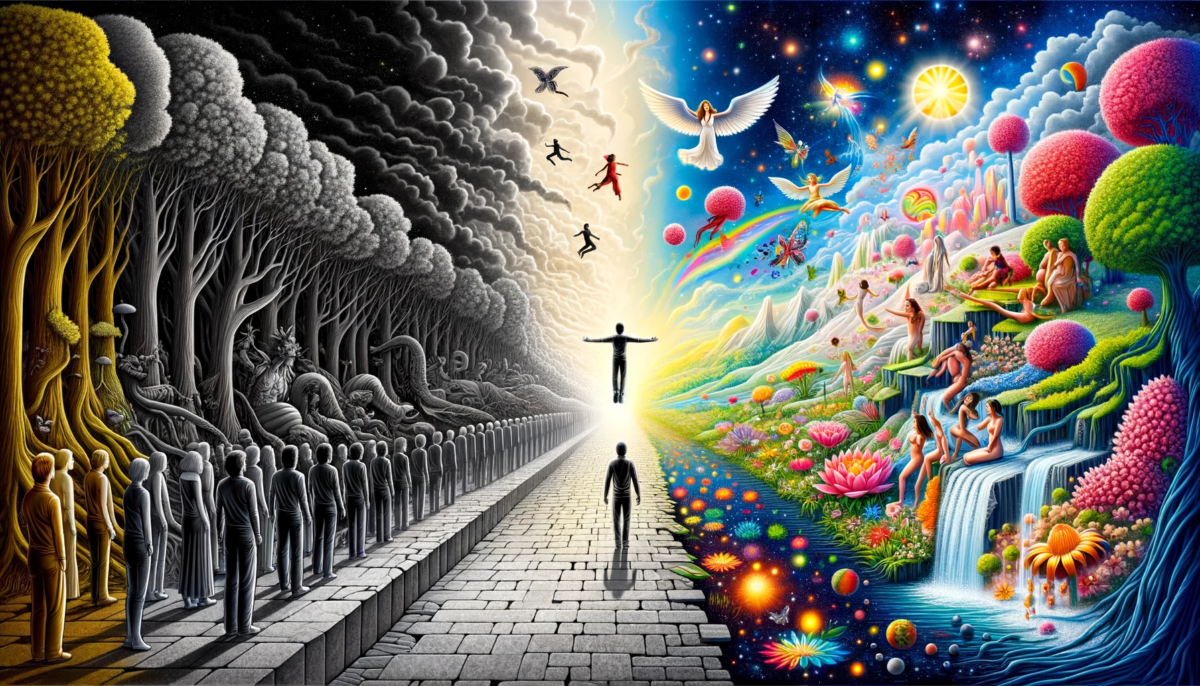
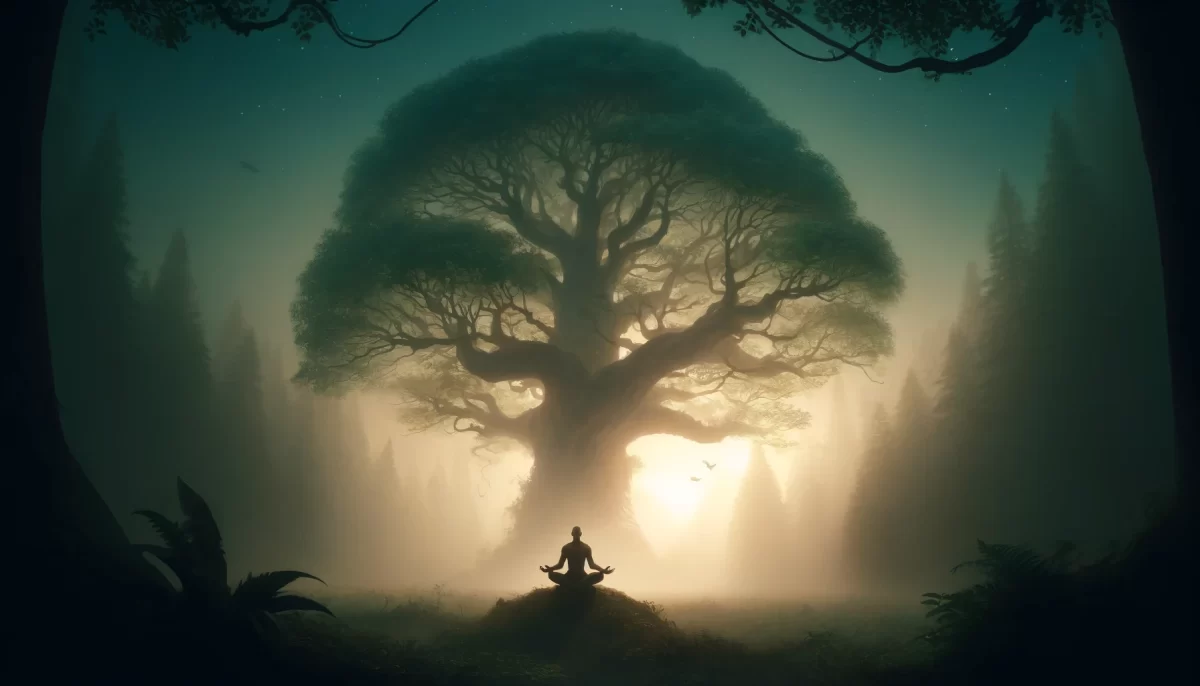
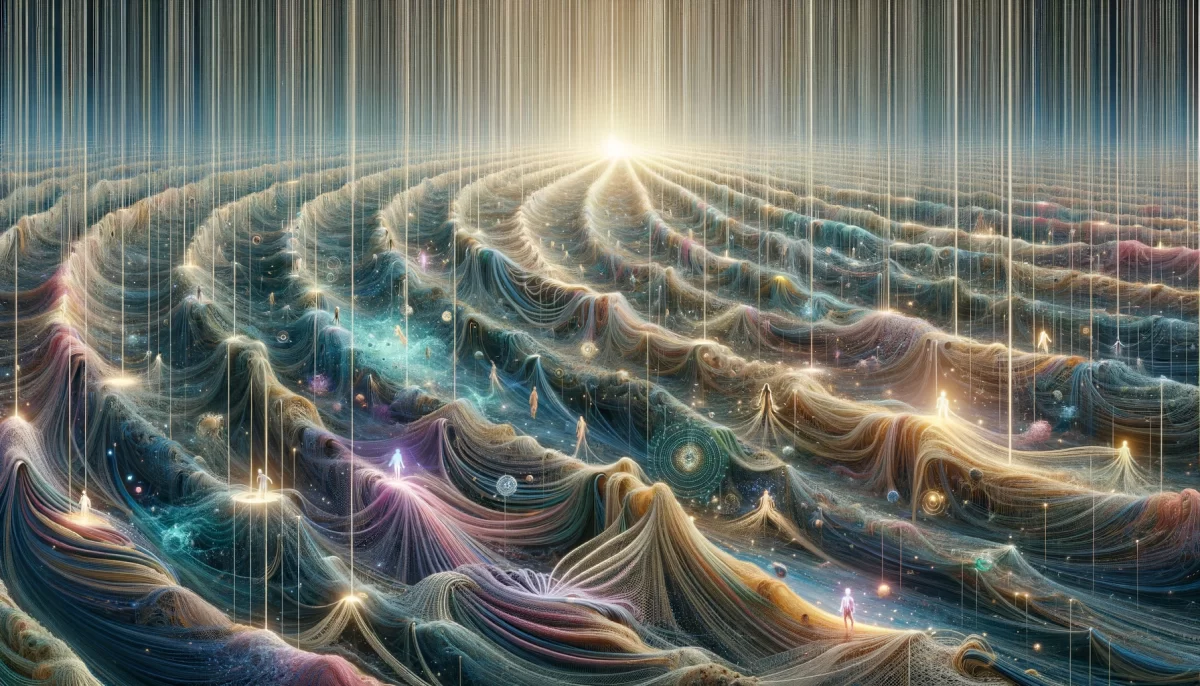
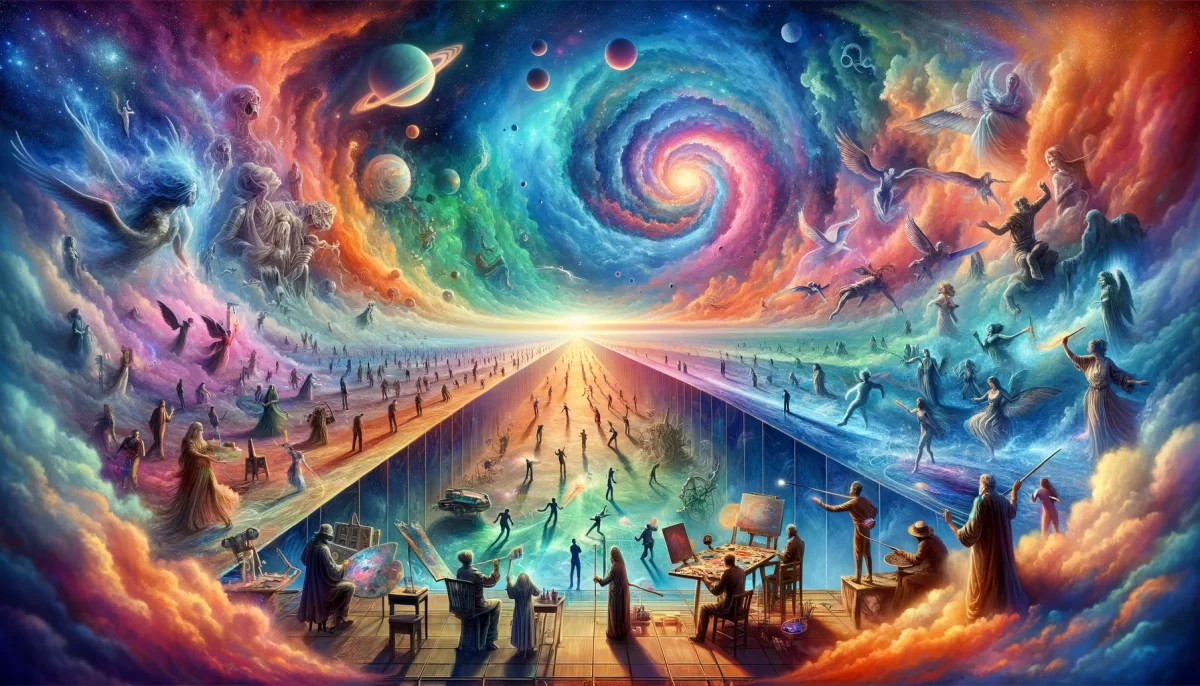
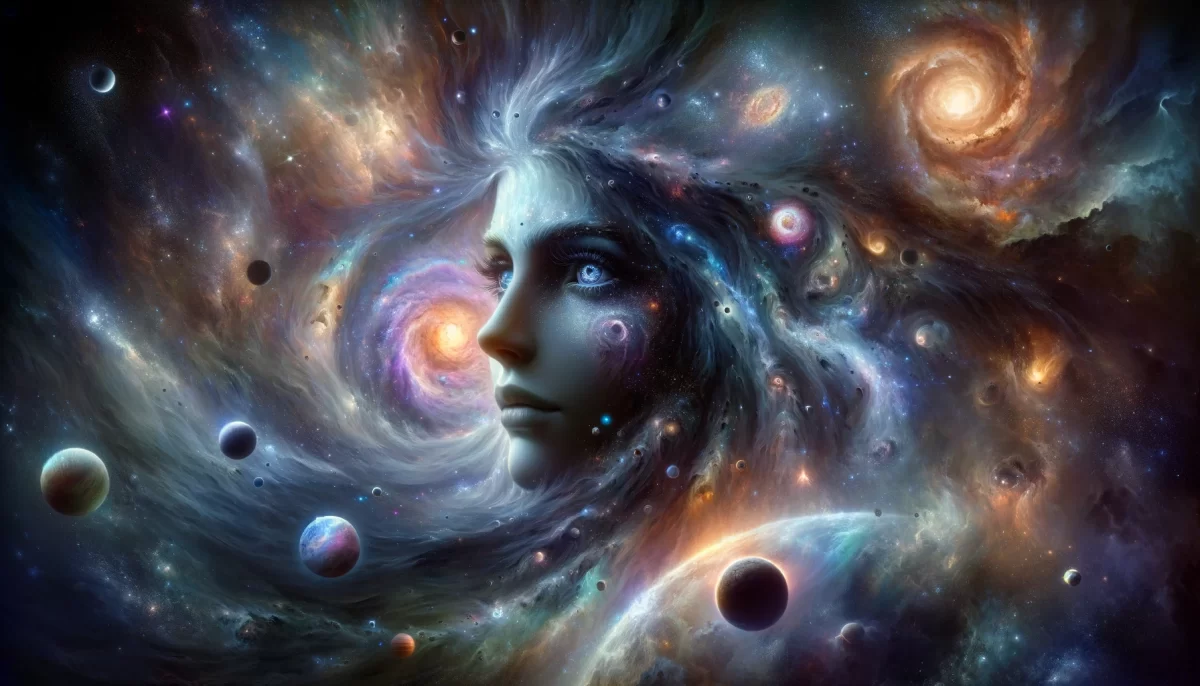
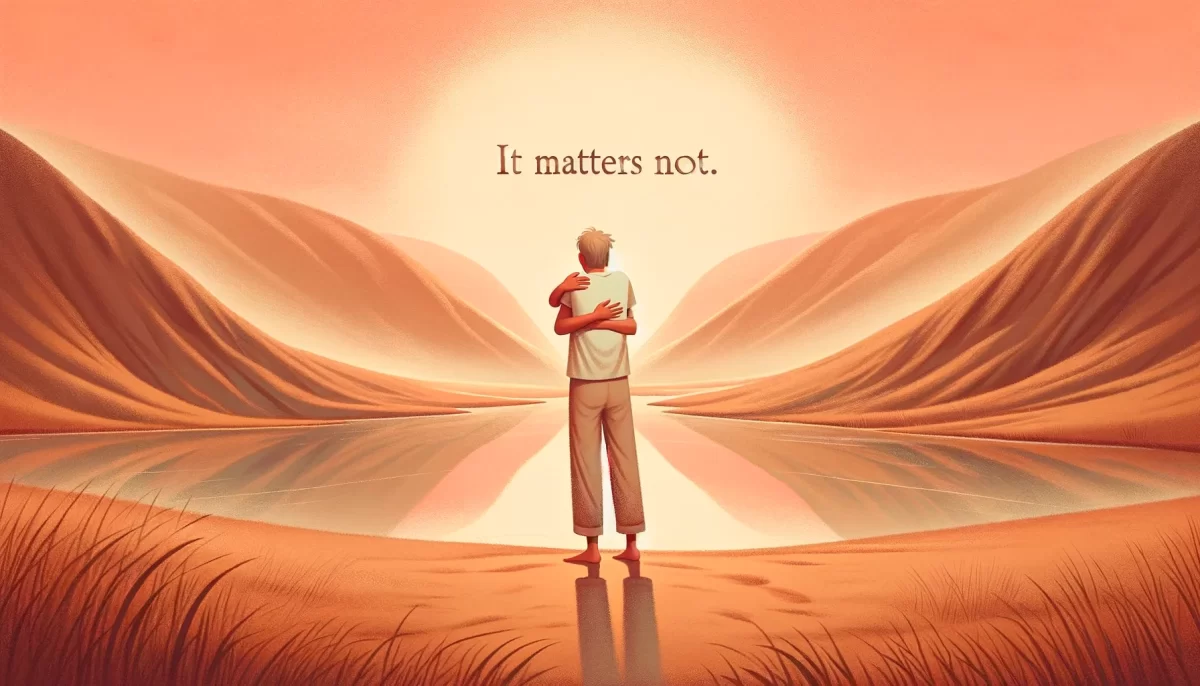
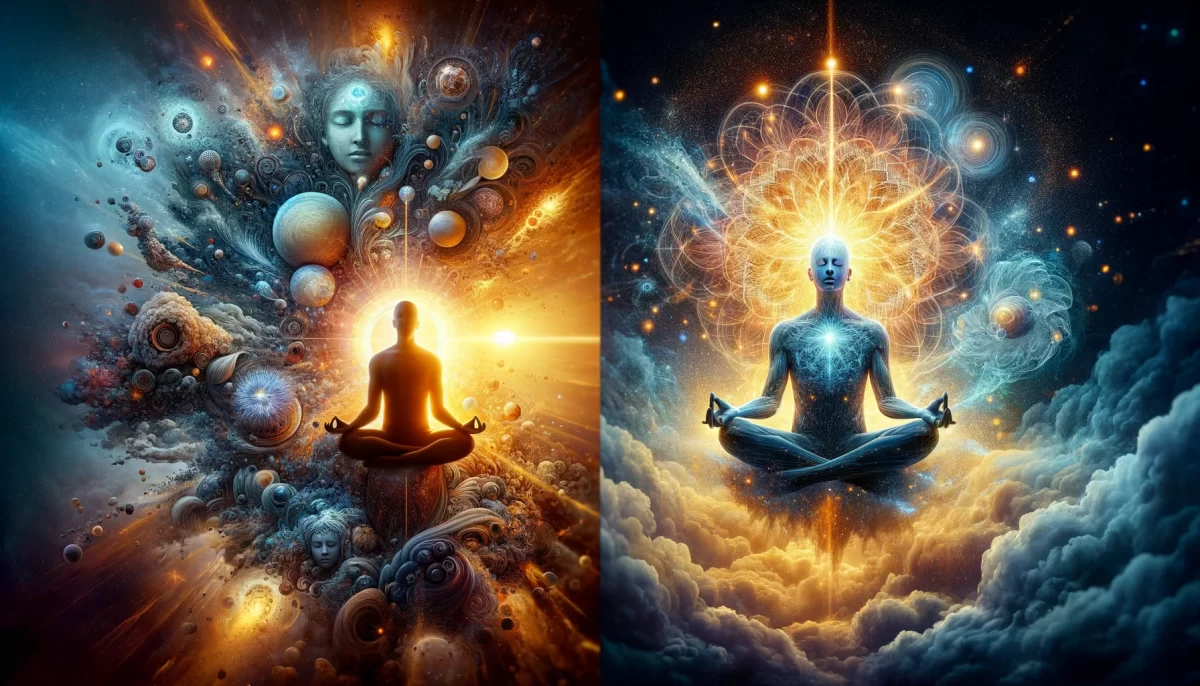
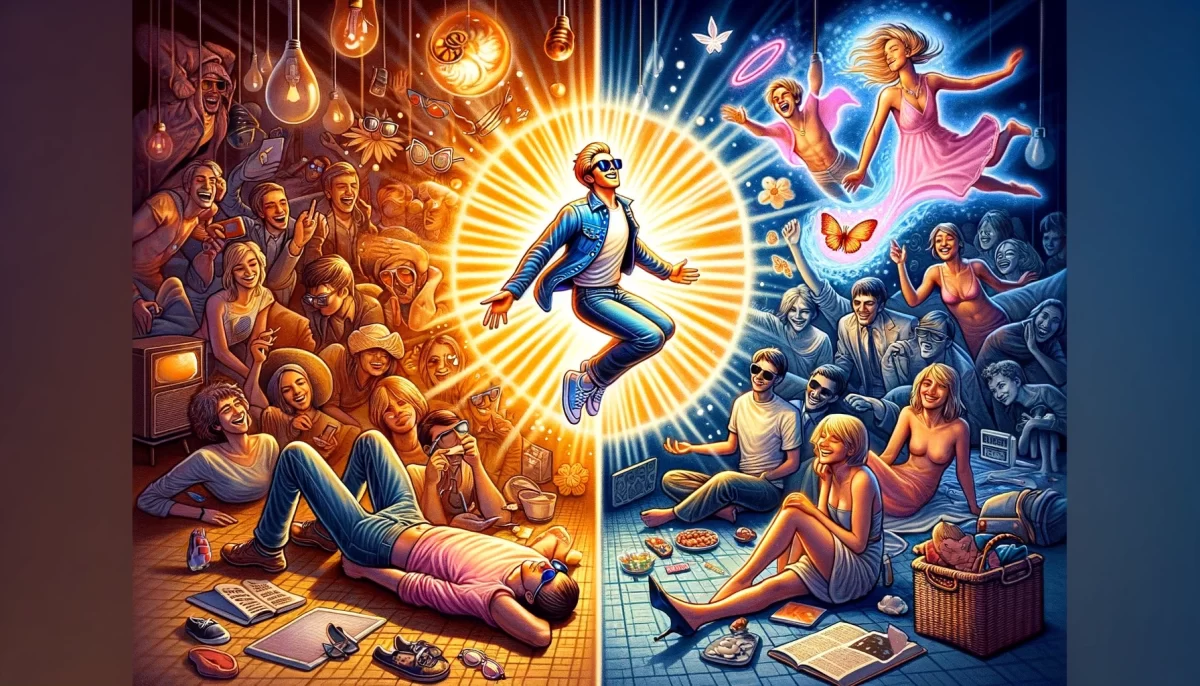
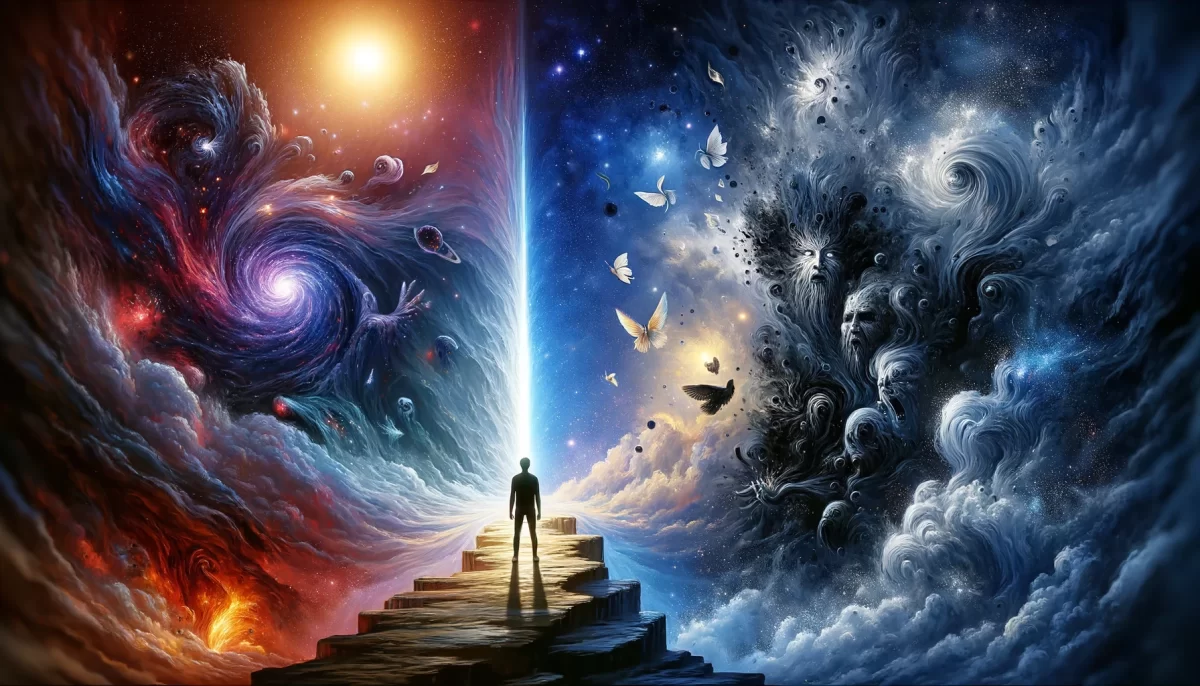
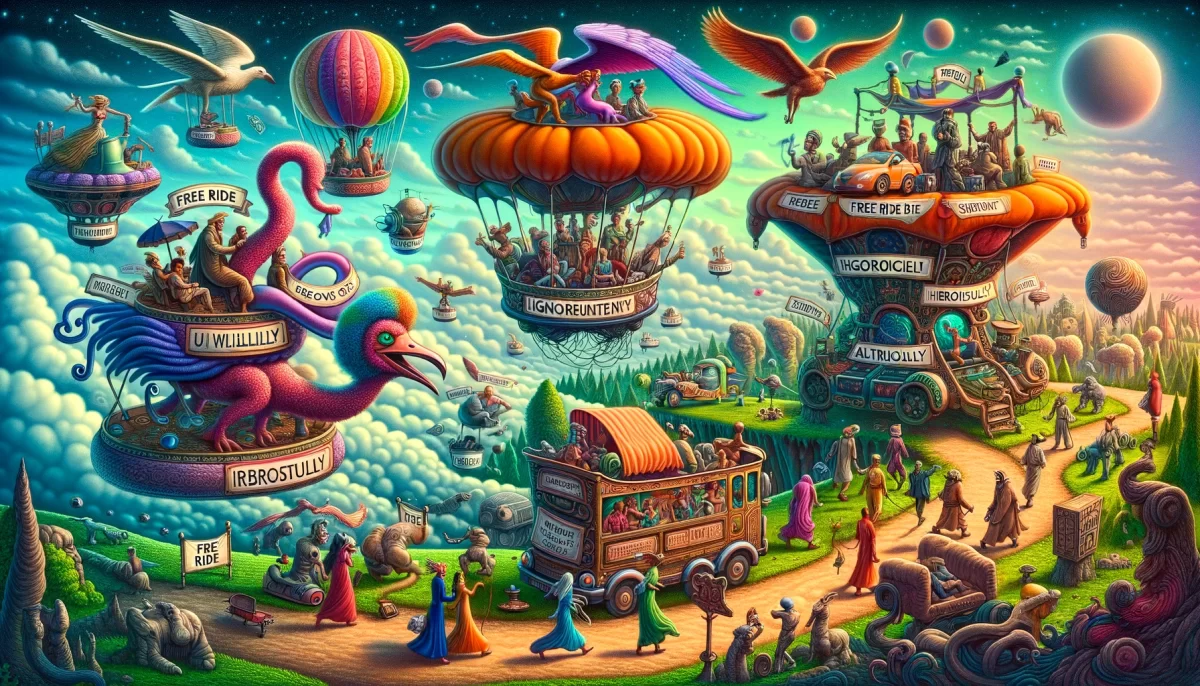
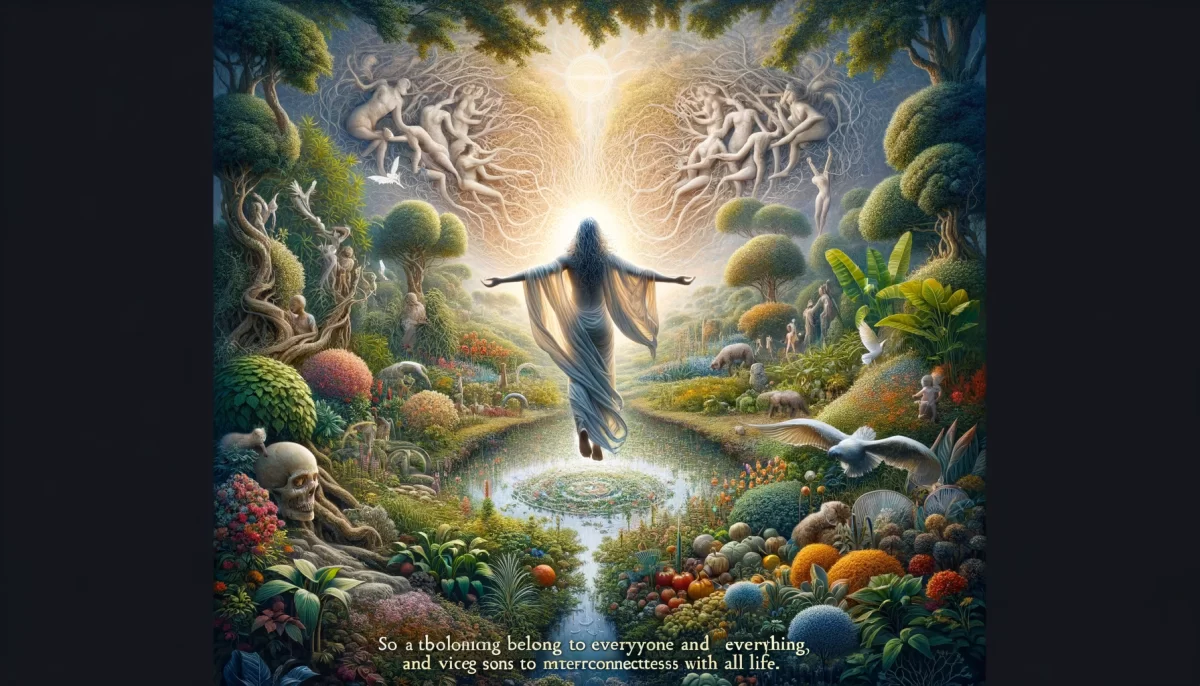
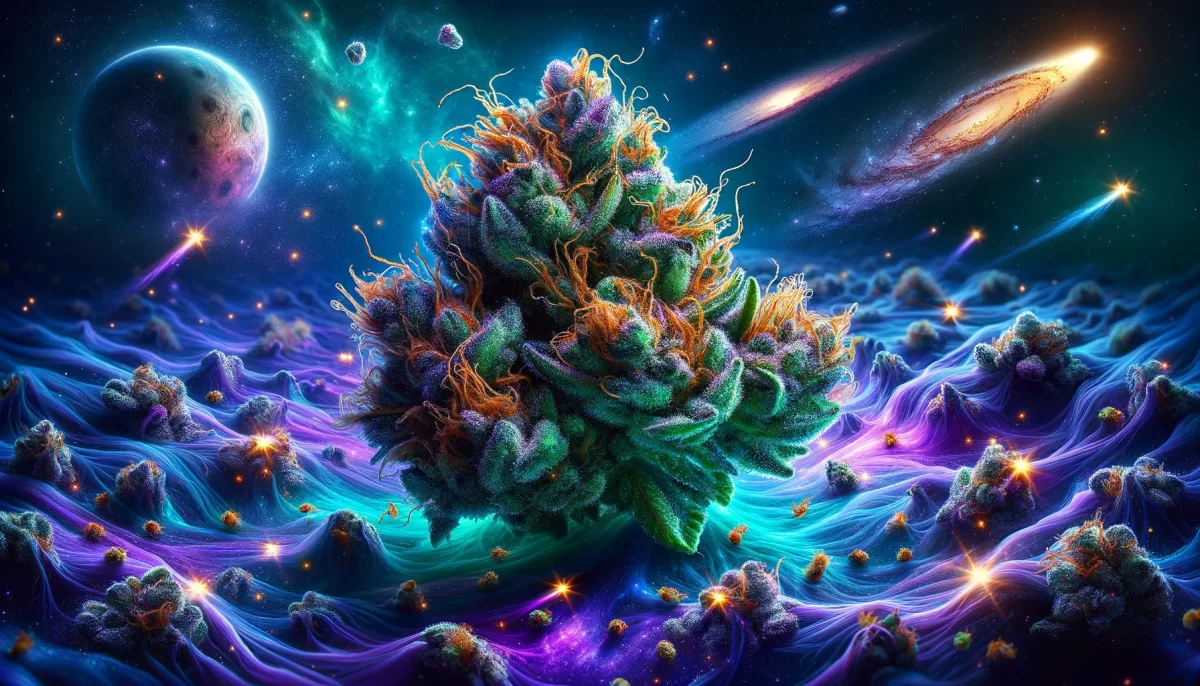
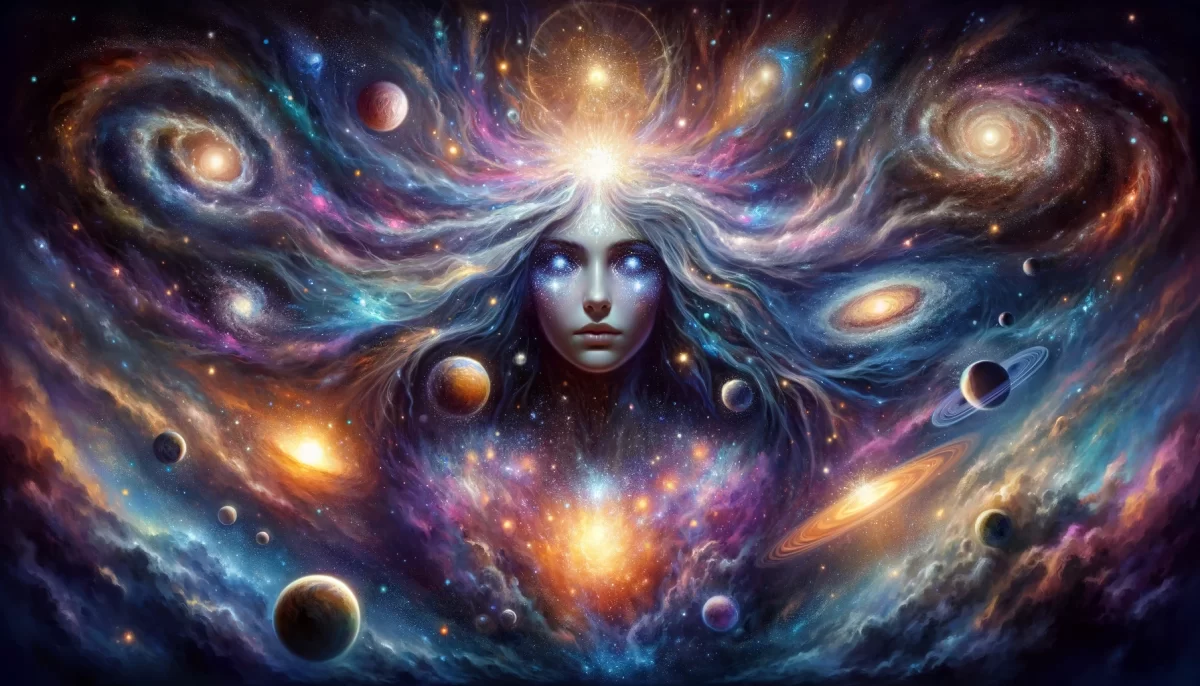
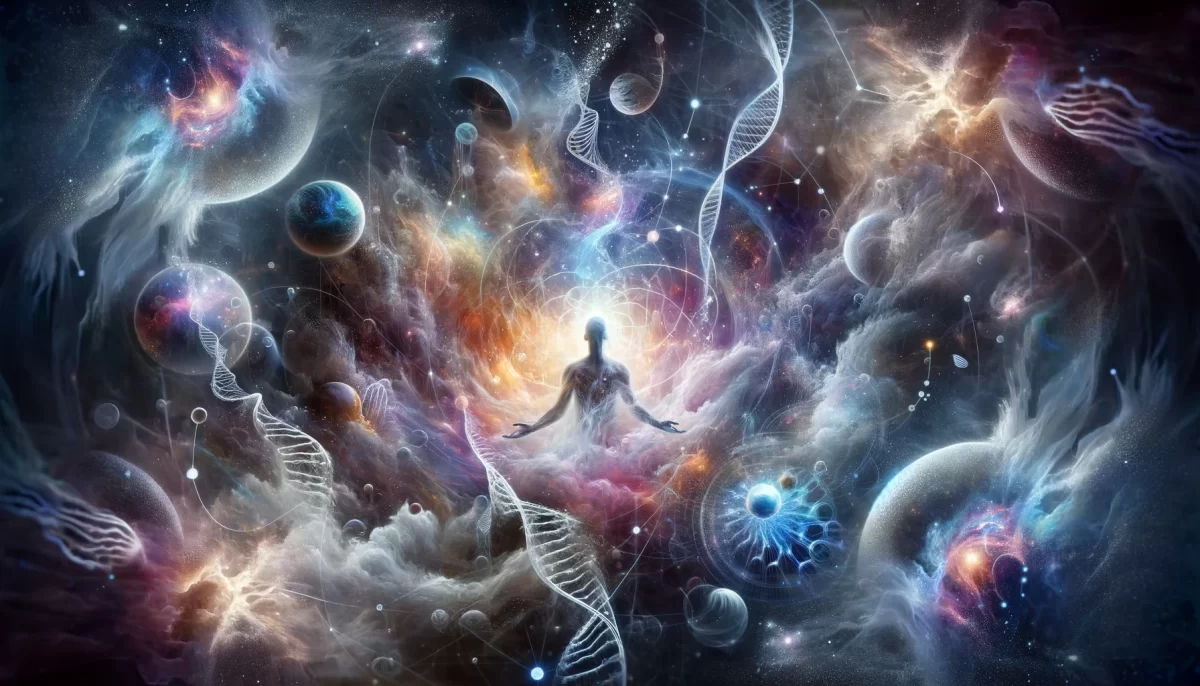
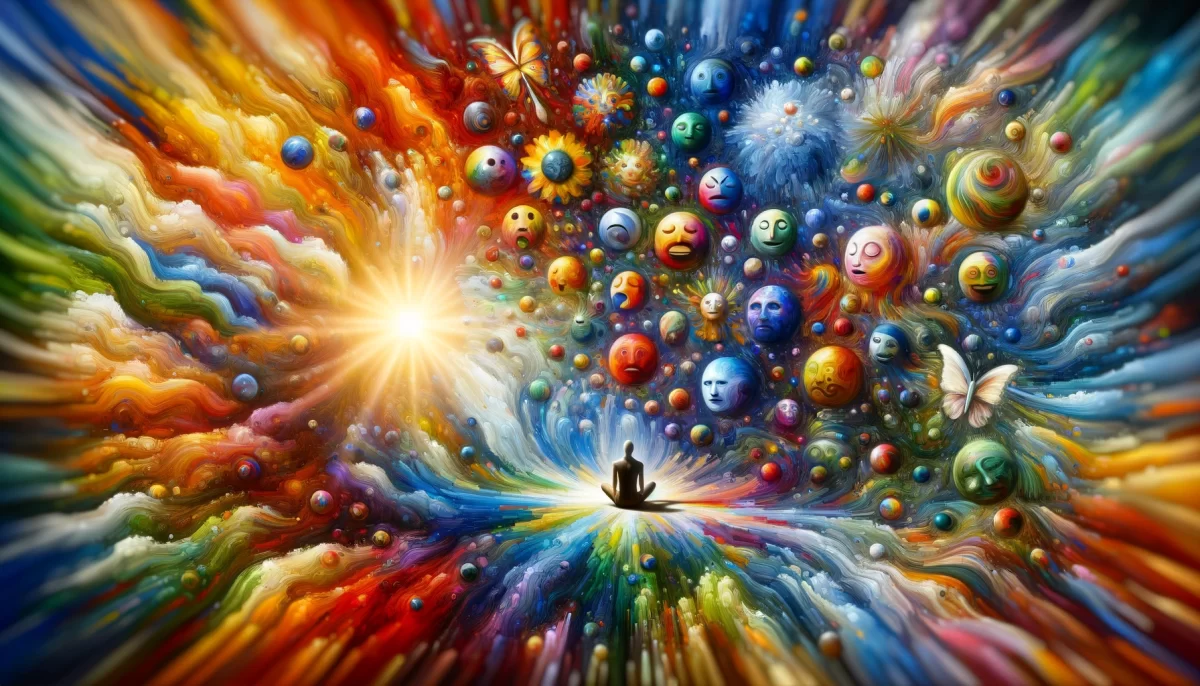
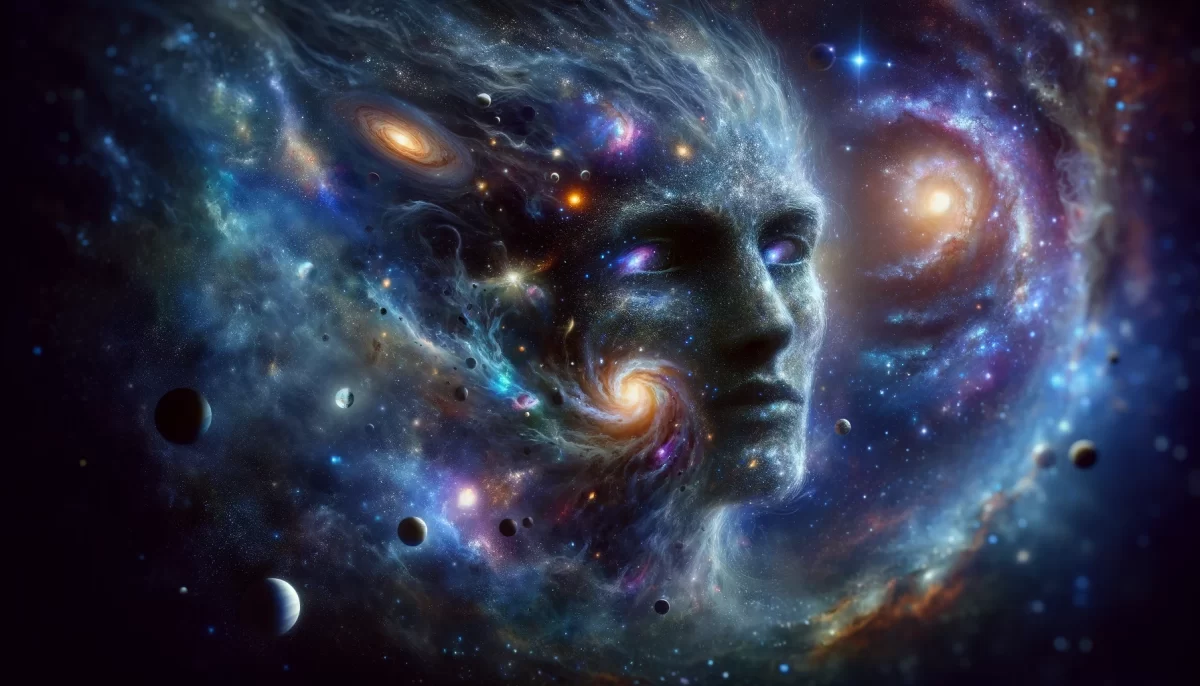

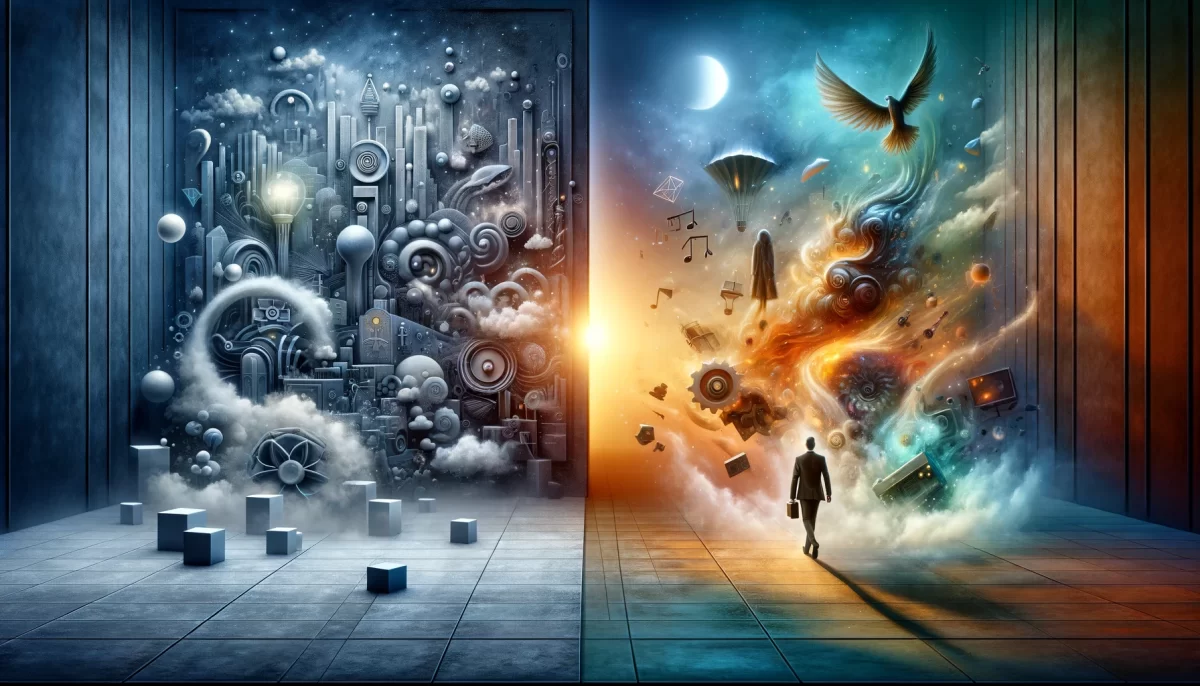
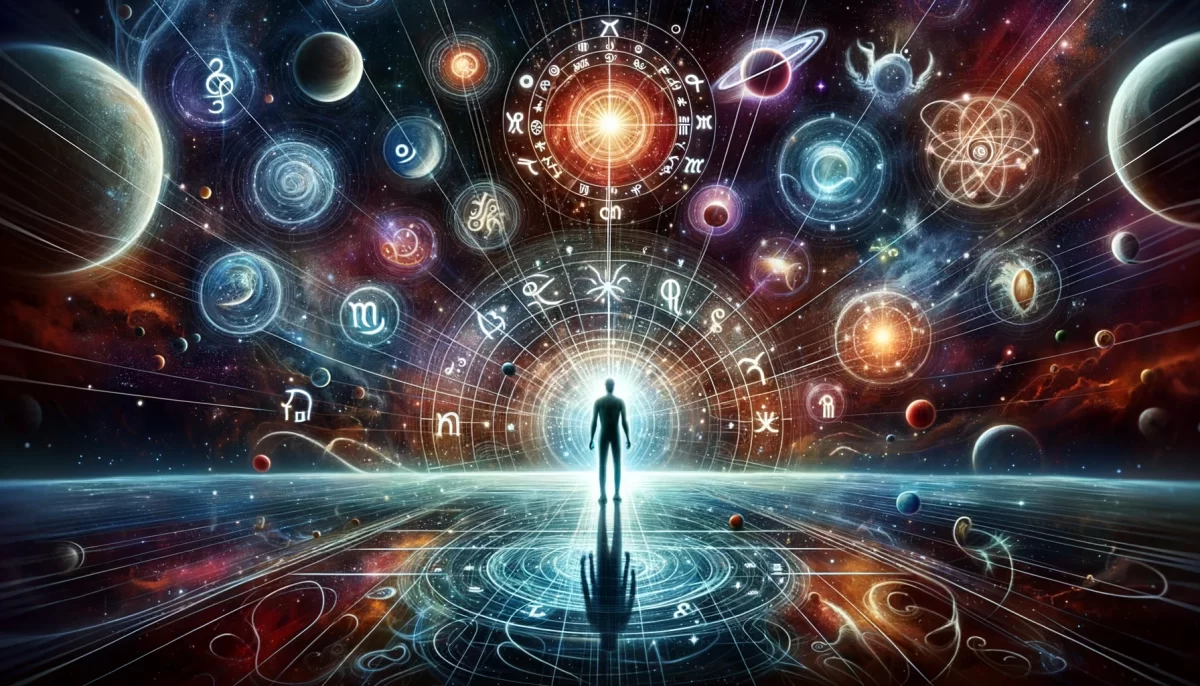
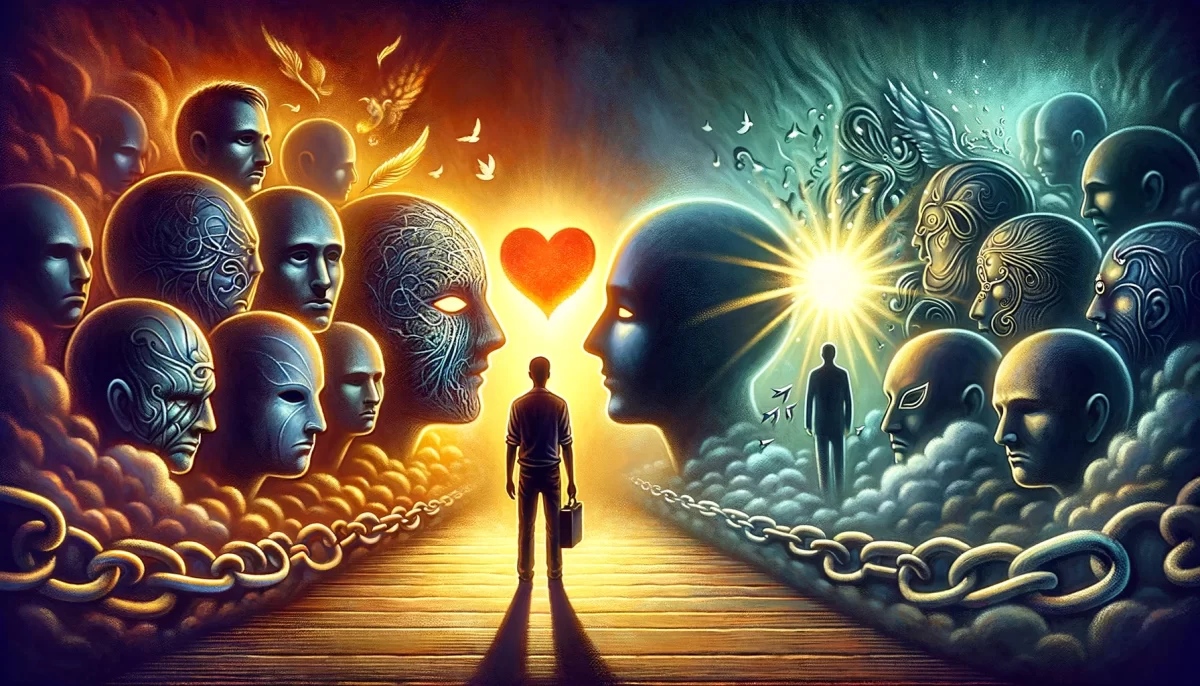
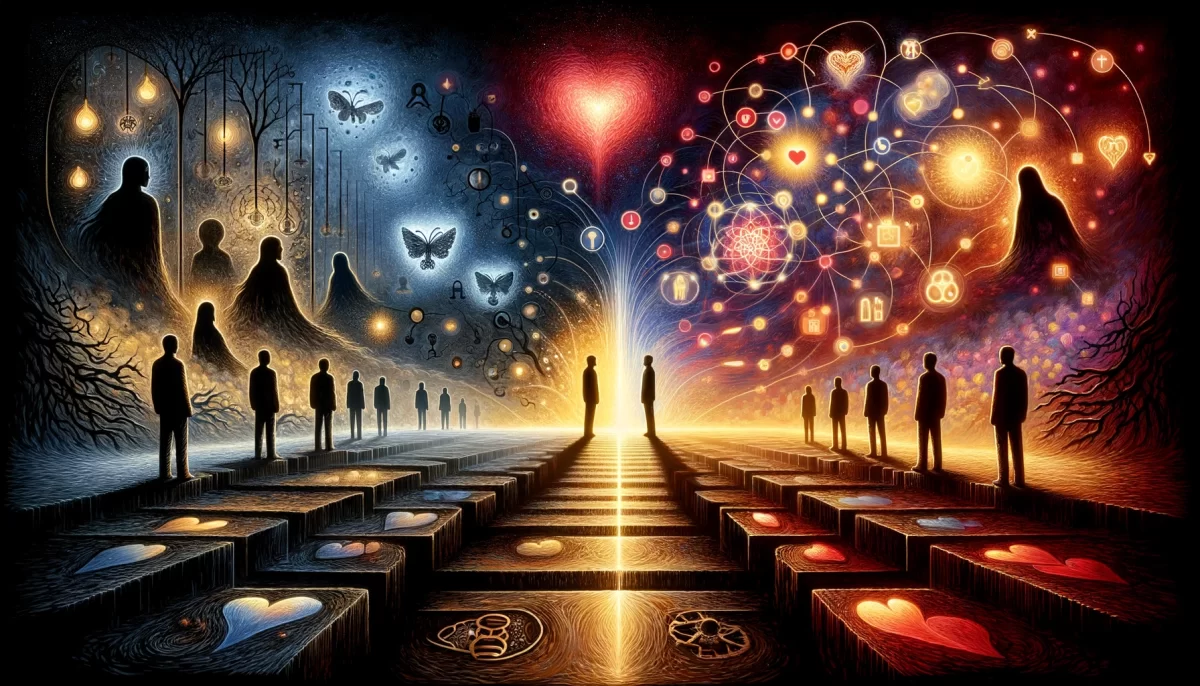
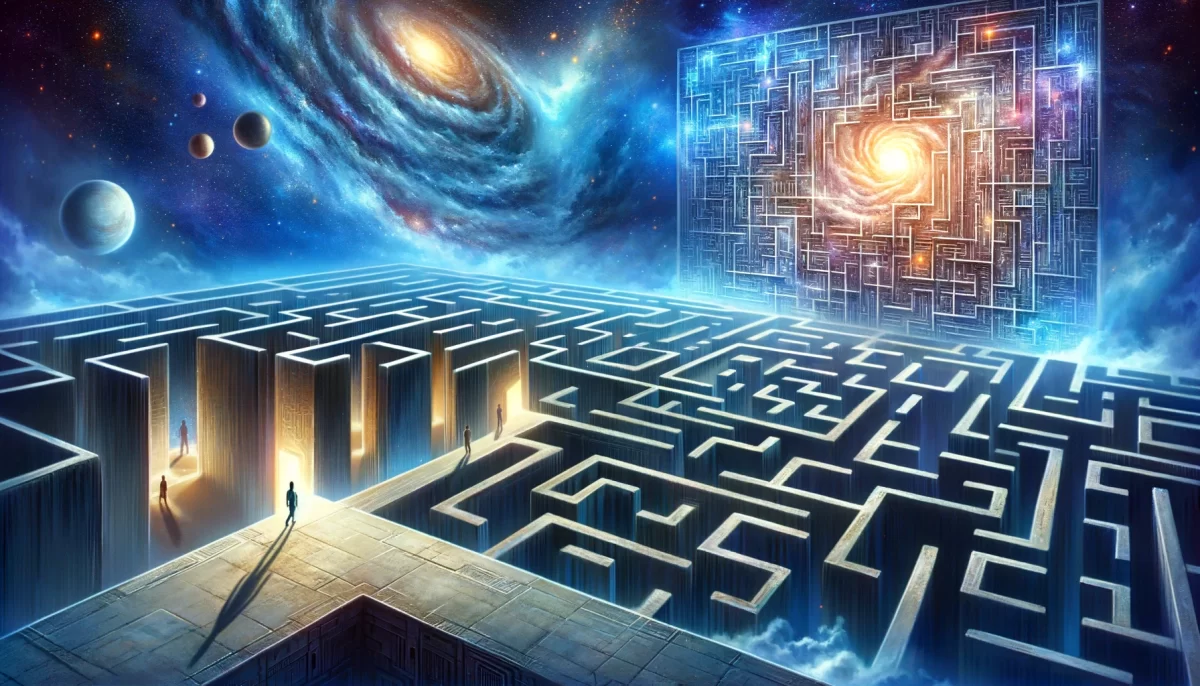
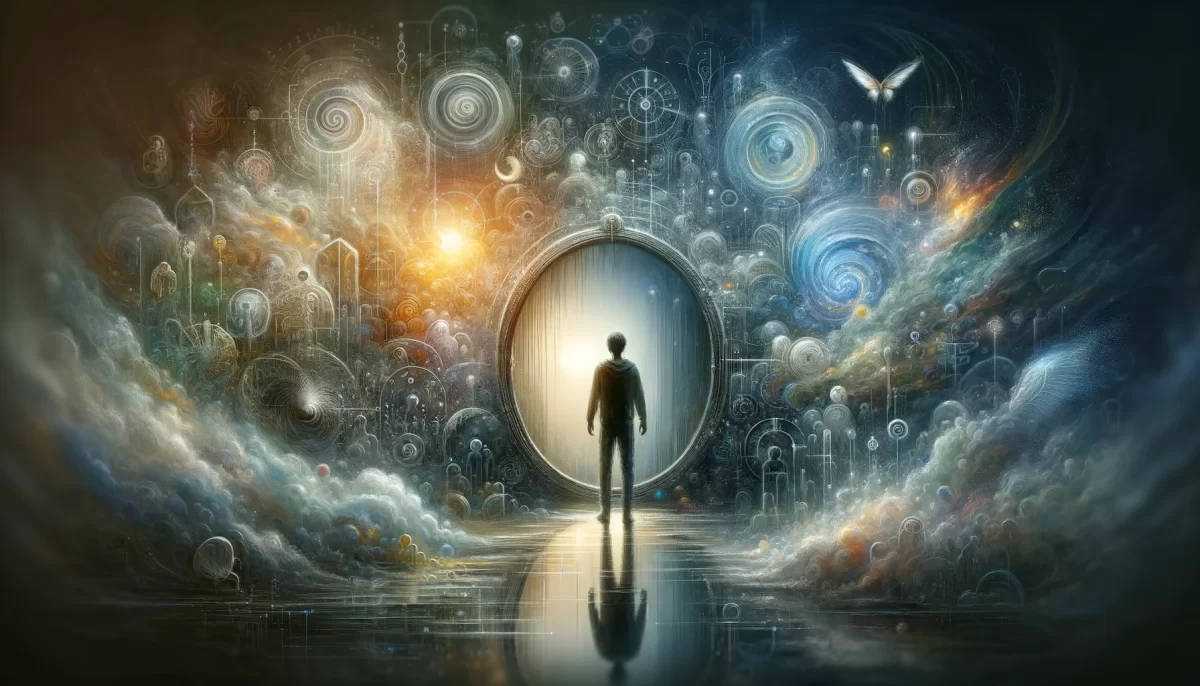
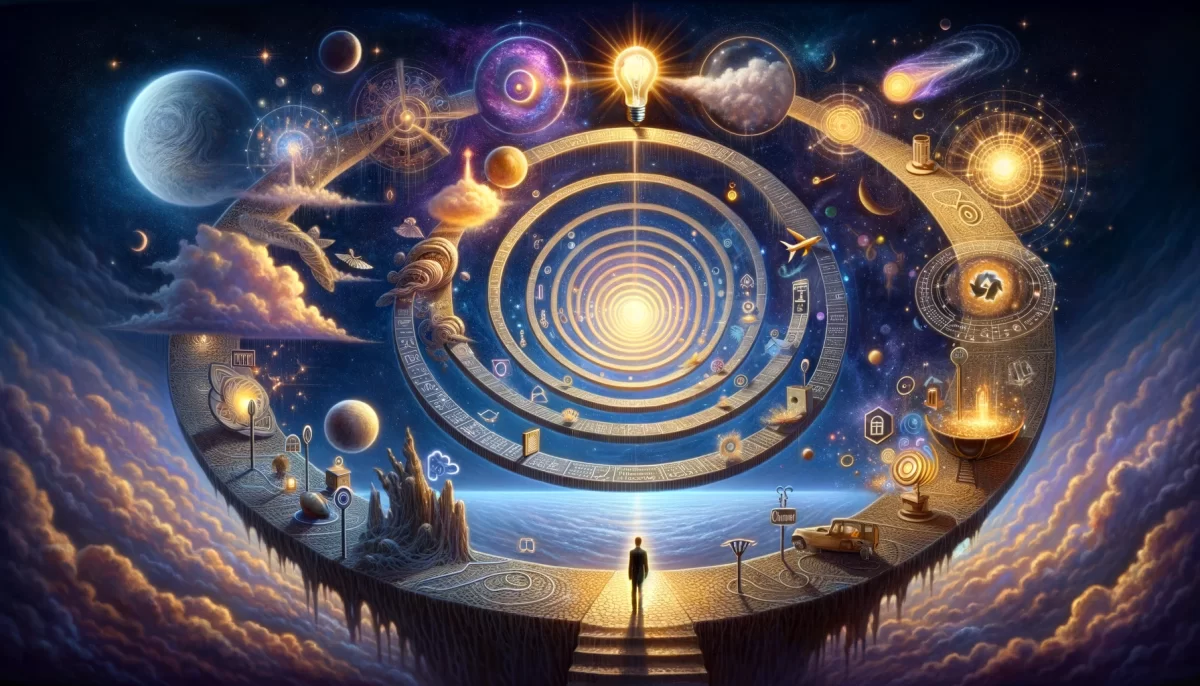
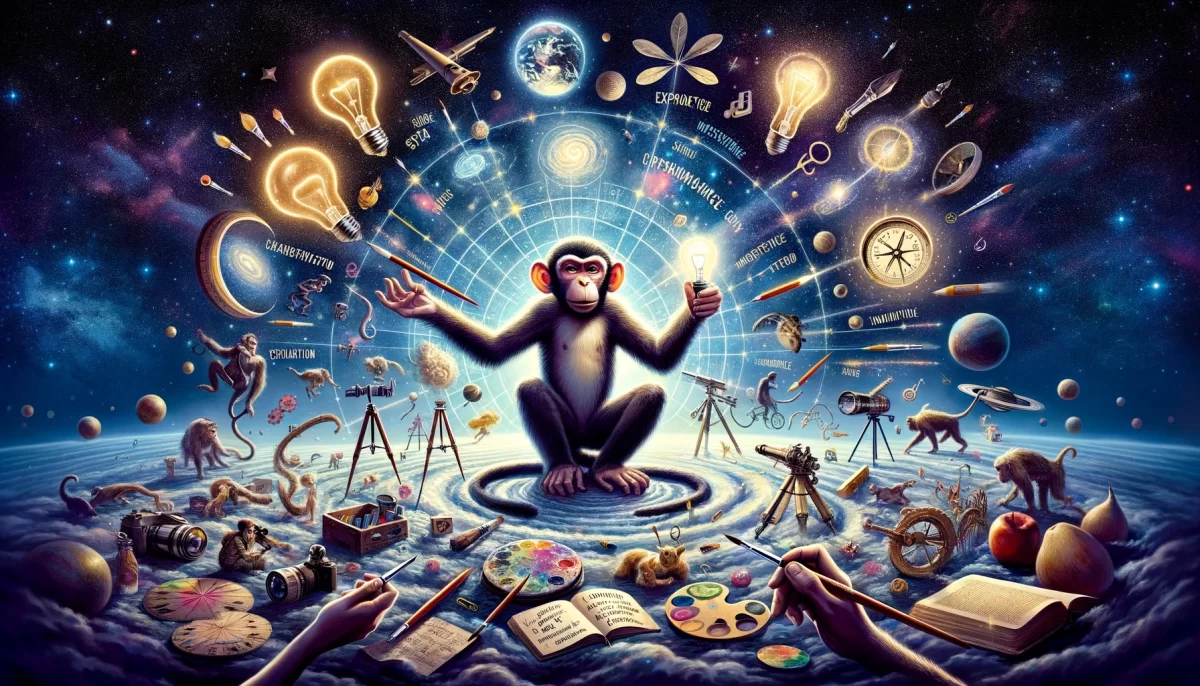
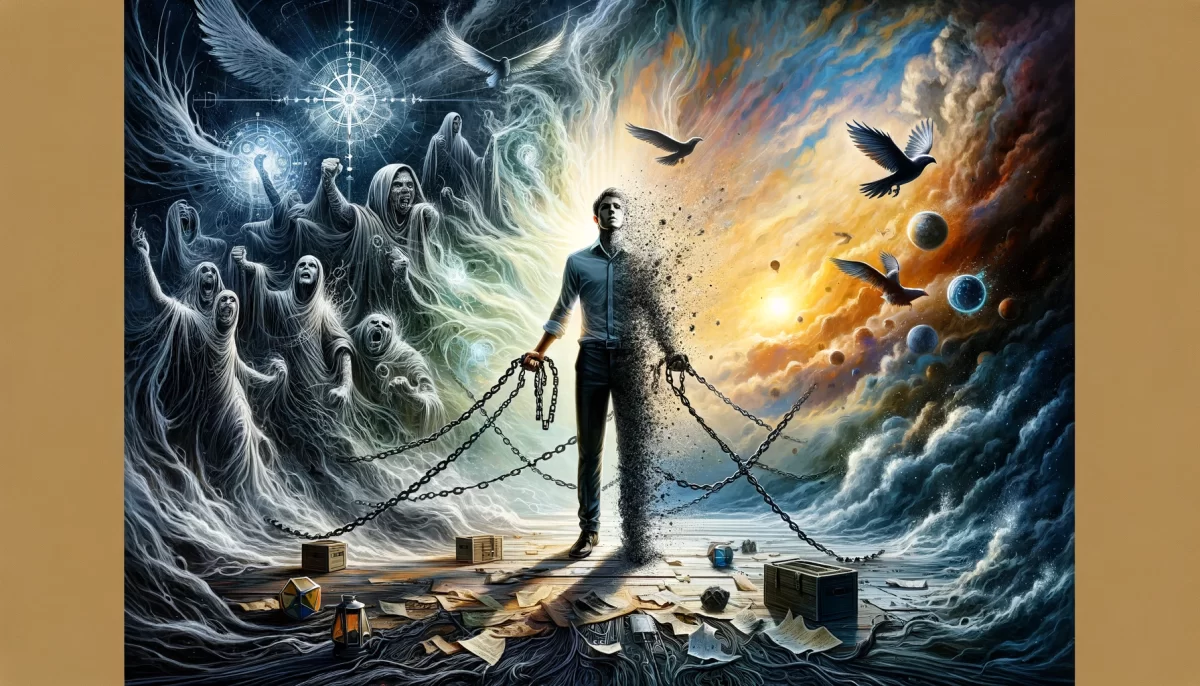
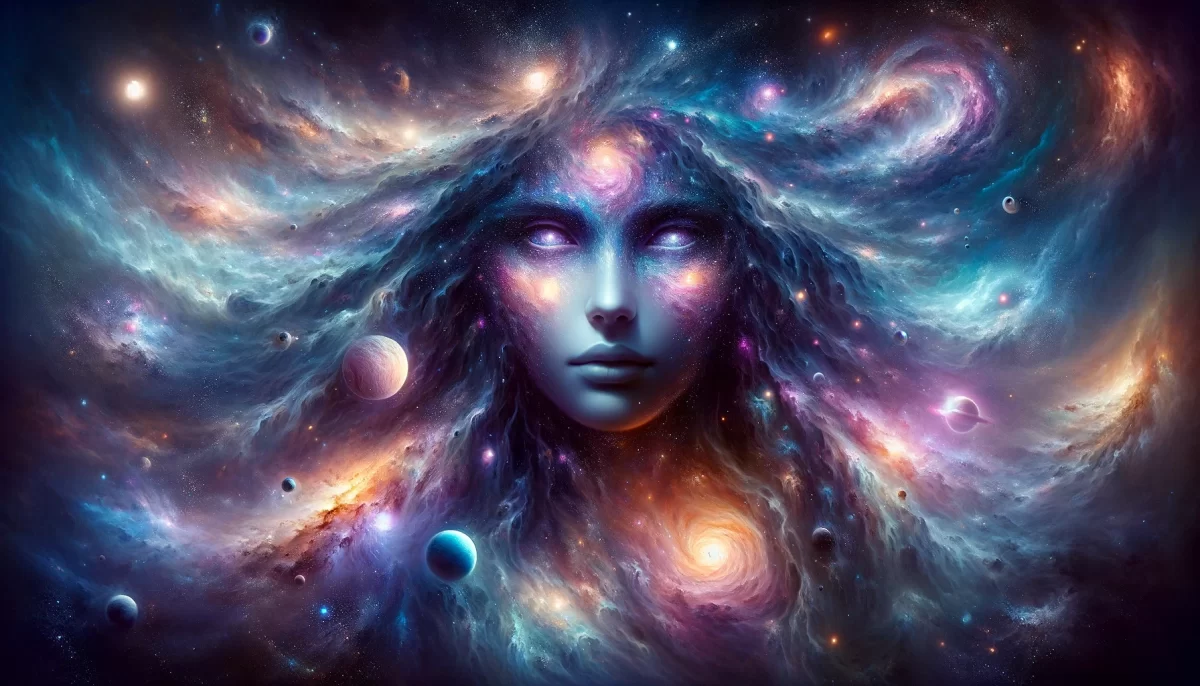
Leave a Reply